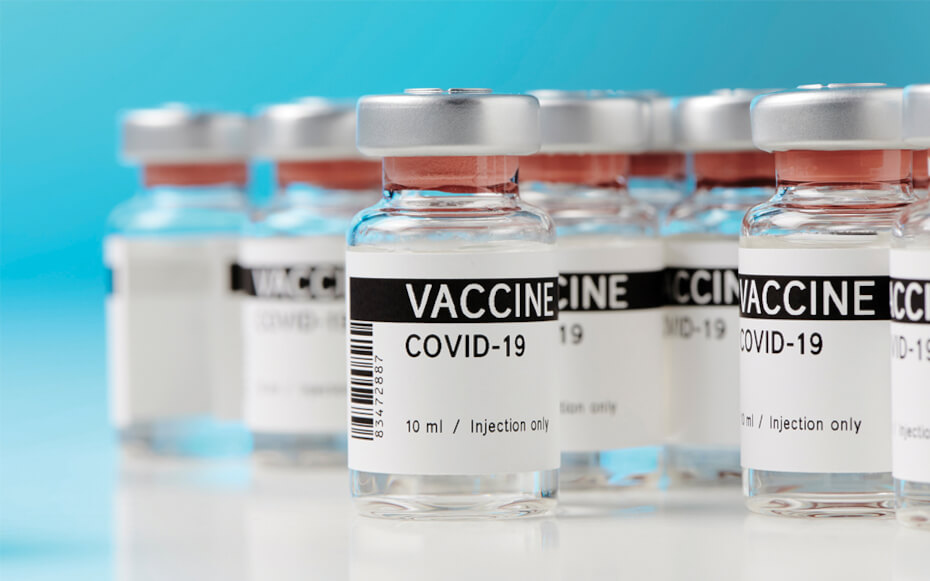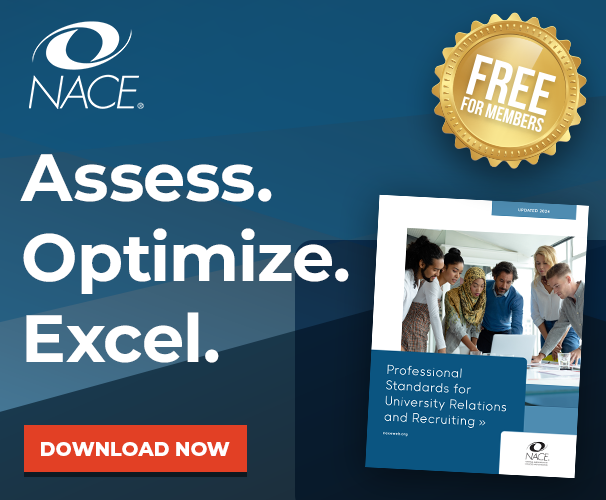NACE Journal, February 2021
Since the beginning of 2020, the COVID-19 pandemic has held the country hostage, caused heartbreak for families, and altered the way people interact and conduct business. On December 11, 2020, however, a glimmer of hope was provided as the Federal Drug Administration (FDA) granted emergency use authorization for a vaccine created by Pfizer/BioNTech. A vaccine created by Moderna was granted the same authorization a short time thereafter. While the various COVID-19 vaccines offer the potential to return to a semblance of normalcy, they also provide questions and concerns for employers and employees. Perhaps the biggest question of all: Can an employer mandate that its employees (or interns) obtain the vaccination? The answer, not surprisingly, is not a simple “yes” or “no.”
To answer the question, one must first understand why would an employer mandate the vaccination. An employer may consider mandating the COVID-19 vaccine for a variety of reasons. The first is simple—to hopefully protect the health and safety of the workforce and the public at large. In addition to health and safety concerns, it is well-known at this juncture that an outbreak of COVID-19 at a workplace can happen in an instant. If such an outbreak occurs, a business can be closed for an extended period of time, costing workers income and the business its livelihood. Even a single case of COVID-19 in the workplace may force a business to close for a period of days. Businesses may also consider a mandatory vaccination policy as a layer of protection against lawsuits related to COVID-19 exposure that can be tied to their place of business either from the public or from its employees.
ADA and the “Direct Threat” Exception
With regard to whether an employer can mandate vaccination for its employees, the answer is “yes, but…” In December of 2020, the Equal Employment Opportunity Commission (EEOC) issued guidance that addresses the issue of mandating the vaccination. According to the EEOC guidance, employers can require workers to get vaccinated against COVID-19, with certain exceptions. The EEOC based its guidance, in part, on the “direct threat” exception to the Americans With Disabilities Act (ADA).
Employees must understand why an employer is mandating the vaccine for its workers.
As a general matter, the ADA prohibits employers from making medical inquiries or requiring medical examinations. One exception to that general rule is if the inquiry or examination is job-related and consistent with business necessity. The EEOC has stated that an employer can satisfy this burden by stating that an employee poses a direct threat to the health or safety of themselves or others.
Earlier guidance provided by the EEOC in March of 2020 stated that because COVID-19 meets the “direct threat” standard under the ADA, employers are permitted to take employment actions that they otherwise could not lawfully take, such as asking employees health-related questions and restricting those with COVID-19 symptoms from entering the workplace. The same logic follows with regard to the COVID-19 vaccination.
The EEOC has indicated, however, that if an employer wishes to mandate the COVID-19 vaccine for its workforce, it must conduct an analysis of certain factors to determine if a direct threat exists. The factors to be considered are 1) the duration of the risk, 2) the nature and severity of the potential harm, 3) the likelihood that the potential harm will occur, and 4) the imminence of the potential harm. If an employer determines a direct threat exists by permitting unvaccinated workers in the workplace, it can exclude such individuals from the workplace if there is no way to provide a reasonable accommodation to the individuals to eliminate or reduce the risks.
Additional Requirements and Exceptions
Once an employer determines that it may mandate the COVID-19 vaccine under the direct threat exception, it must comply with additional requirements established by law. In this regard, employers must provide a waiver process for individuals who are unable to receive the vaccination for medical reasons. Employers must adopt a written policy that informs employees of their rights to request a waiver, the time period to provide such a waiver request, the information that must be provided, and the consequences for failing to receive the vaccination if the waiver is not obtained.
For example, if an individual has a medical condition that may cause them to have a severe allergic reaction to the COVID-19 vaccine, an employer cannot require the employee to receive the vaccination. In such cases, the employer must offer a reasonable accommodation to the employee, such as working remotely or continuing to wear a mask, as long as the accommodation does not cause an undue hardship for the employer. If there is no accommodation possible, then an employer may prohibit the employee from entering the premises but can not necessarily fire the employee. In this situation, the employer will need to determine if the employee has other rights under federal, state, or local laws, including the ability to take unpaid leave under the Family and Medical Leave Act or the ADA.
An individual’s medical condition is not the only issue that must be addressed by an employer when mandating the COVID-19 vaccination. Under Title VII of the Civil Rights Act, an employer is also required to accommodate an individual based upon their sincerely held religious beliefs. The foregoing would include a religious belief that objects to vaccinations. In order to assess this question, an employer must understand the applicable law.
Employers must be aware that a religious belief need not be widely practiced in order to be protected. A religious belief merely has to be a moral or ethical belief that is held with the strength of traditional religious views. Notably, social, political, and economic philosophies and personal preferences are not religious beliefs, no matter how sincerely held they may be. As such, a personal opinion as to the merits of the COVID-19 vaccination is not a religious belief.
Once a religious belief is identified, an employer can consider certain factors to determine if it is sincerely held. The factors are whether the employee has behaved in a manner markedly inconsistent with the professed belief; whether the accommodation sought is a particularly desirable benefit that is likely to be sought for secular reasons; whether the timing of the request renders it suspect; and whether the employer otherwise has reason to believe the accommodation is not sought for religious reasons. Unlike a medical inquiry, an employer should not generally request supporting information or documentation to verify a sincerely held religious belief. If, however, there is an objective basis for questioning the sincerely held religious belief, an employer can request supporting information. Employers must err on the side of caution when questioning a religious belief and only do so if there is a legitimate reason based on the factors set forth herein.
As part of the employer’s mandated COVID-19 vaccination policy, it must also provide a waiver for a sincerely held religious belief. If an employee identifies such a belief, the employer must accommodate the belief in the same manner as it would for the medical accommodation, provided it does not constitute an undue hardship on the employer. If the request made is for non-religious reasons, the employer may deny the employee’s request for a waiver.
Addressing Noncompliance
If an employee rejects getting a COVID-19 vaccination and does not have a medical or religious reason for refusing to get vaccinated, an employer is presented with limited options. The first option is to have a discussion with the individual, determine the reason for refusing the vaccination, and provide relevant and pertinent information as to why the employer is mandating the vaccine. If the employee continues to refuse the vaccination, an employer can either attempt to accommodate the individual, inform the individual that they are not permitted to work until they obtain the vaccine or it is no longer a requirement of the workplace, or terminate the individual’s employment. Employers must be consistent with its handling of these matters. As with any policy, an employer cannot treat employees dissimilarly or it may open the door for a different type of discrimination lawsuit.
Contractors, Interns, and a Vaccine Mandate
Employers must also consider other factors when determining whether to mandate the COVID-19 vaccine. One such consideration is the make-up of the business’ workforce. Does the business have independent contractors, interns, or temporary employees from an outside agency? If a business uses different types of workers, it must determine how it will implement its mandate for such individuals.
Interns—whether paid or unpaid—should be afforded the same protections provided to regular employees with regard to a mandated COVID-19 vaccine policy.
With regard to independent contractors and interns, the analysis and requirements are essentially the same as they would be for employees, but with certain exceptions. Independent contractors, and in some instances unpaid interns, are generally not covered by federal anti-discrimination laws. As such, the waiver requirements of the ADA and Title VII would not be applicable to such individuals. State laws, however, may provide similar requirements and protections for such workers. For example, Pennsylvania’s anti-discrimination law, the Pennsylvania Human Relations Act, does cover certain independent contractors and would provide similar protections. Accordingly, a business should review the applicable laws with legal counsel prior to implementing policies or procedures for contractors. It is recommended that interns, whether paid or unpaid, should be afforded the same protections provided to the regular employees with regard to a mandated COVID-19 vaccine policy.
Employers with a unionized workforce are also required to comply with the language of the applicable collective bargaining agreement. While some agreements may permit employers wide latitude to implement a vaccination policy pursuant to a “management rights” provision, other agreements are more restrictive. Employers may be required to bargain over the implementation of a mandatory vaccination policy prior to it becoming effective. If an employer fails to bargain with its unionized employees prior to adopting and implementing a policy, it can run afoul of the bargaining agreement and the National Labor Relations Act.
Recommending, Not Requiring
If an employer decides not to mandate the COVID-19 vaccine, but merely recommends that workers receive the vaccination, additional issues should be considered. Pursuant to the EEOC guidance, if an employer simply requests proof of the COVID-19 vaccination, it is not conducting a medical inquiry. Accordingly, such a request is entirely permissible. Employers must be mindful not to go further with its line of questioning or it may butt up against ADA-related issues. For example, if an employer requests information from its workers as to why an individual did not obtain the vaccine, it may elicit information on medical information and, therefore, come under the auspices of the ADA. Accordingly, requiring proof of the vaccine, by itself is permissible, but an employer may want to stop its questioning at that juncture to avoid additional issues.
A Well-Drafted Policy, Clear Communication, and Accurate Information
Ultimately, if an employer wishes to mandate the COVID-19 vaccine, it must do so in accordance with applicable laws and any pertinent collective bargaining agreements. A detailed and well-drafted policy is necessary to ensure compliance with the law. What is equally important, however, is to communicate effectively with the workforce. Employees must understand why an employer is mandating the vaccine for its workers. Employers must also provide answers to any questions employees have with regard to the vaccine so that accurate and proper information is available.
Given the issues that business and individuals have been subjected to in the last year, it is imperative that employers and employees try to work together to create a healthy and safe environment going forward.



